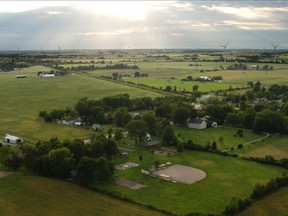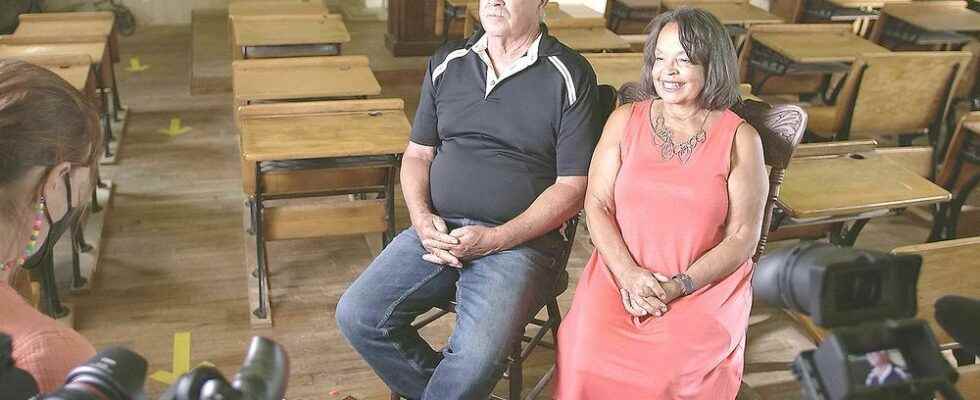
A new TVO documentary presents North Buxton as a place home to people dedicated to keeping its sense of community alive while facing a shrinking population.
Crossroads: Beyond Boom and Bust, a series featuring small towns in Ontario, filmed an episode in the Underground Railroad settlement last year, which will premiere July 11 at 7 pm
The episode includes both the history of North Buxton from its founding in 1849 and how its residents are living today.
“Even though the community is not as highly populated as it once was, I tell people that we are still existing as that small Black community,” said Shannon Prince, who is featured in the project.
“A lot of those values that were instilled in generations before us are still evident today – that sense of community, that community support.”
Prince, who is the curator of the Buxton National Historic Site and Museum, said people from every generation have understood they should be proud to come from a community that played a significant role in North American history.
The documentary also features Prince’s husband Bryan, members of Buxton’s Next Generation, people who have moved to or moved back to North Buxton and local farmers, as well as people who attended the North Buxton Homecoming event last year.
Jennifer Horvath, executive producer of Alibi Entertainment Inc., which makes the series, said the production team looked for small towns where there had been a shift in either demographics or the economy within a generation.
“Buxton is not a place where there is a big employer or anything that provides employment that helps to keep young people in the community,” she said.
“It has really had to come from within the community itself to continue to make their stories relevant and compelling enough to keep young people who grew up there – keep them living there – and also attract new people to move there.”
Of the six towns Crossroads featured this season, North Buxton was the smallest, at about 150 people. The largest was Stratford at almost 32,000 people.
While the series was greenlit before the start of the COVID-19 pandemic, Horvath said the stories of all of the featured communities were affected in some way. In North Buxton, it was how the museum has been able to get its story out through virtual means.

“I think that has been an opportunity for the people involved with the museum to really expand their reach and their educational efforts beyond which ever school groups can travel there on a field trip during the day.” Horvath said.
Prince said interest in North Buxton’s story has grown since the killing of George Floyd in 2020. She said schools and corporations are looking for more resources related to equity, diversity and inclusivity.
“Now they are being more aware of who we are and what we have, the plethora of resources that we do have,” Prince said. “I think it (the history) is being shared more broadly now.”
The episode includes segments on how people from other areas come to the museum for their family history, how Buxton’s Next Generation is trying to engage youth and how some landowners today are restoring their properties with native plants or engaging in sustainable farming.
The legal battle between the congregation of the North Buxton Church and the British Methodist Episcopal Church over the ownership of the church property is also featured. Horvath said this was a “late addition” to the project after they had talked with people in the community.
“It’s a very emotional issue for a number of people who have historic ties to that community,” she said. “It’s probably the kind of thing you could make a whole separate documentary about.”
Horvath said it was a “meaningful experience to work on this episode,” as it is a part of Canadian history that some still don’t know about.
“So many aspects of this story … are so unique and, really, I was so excited to bring this maybe to a slightly larger audience,” she said.
Prince said she hopes the documentary helps inform people that places settled by formerly enslaved people are still around.
“It’s just to let people know that we are here, because we don’t have those big budgets to advertise,” Prince said. “Just the fact that there are still places like here that you can visit and see some of those original documents and artifacts.”
The episode will also be posted to the TVO Docs YouTube page following its premiere. It will also air again on July 14 at 9 pm (repeat at 12 am) and July 17 at 8 pm (repeat at 1 am).
